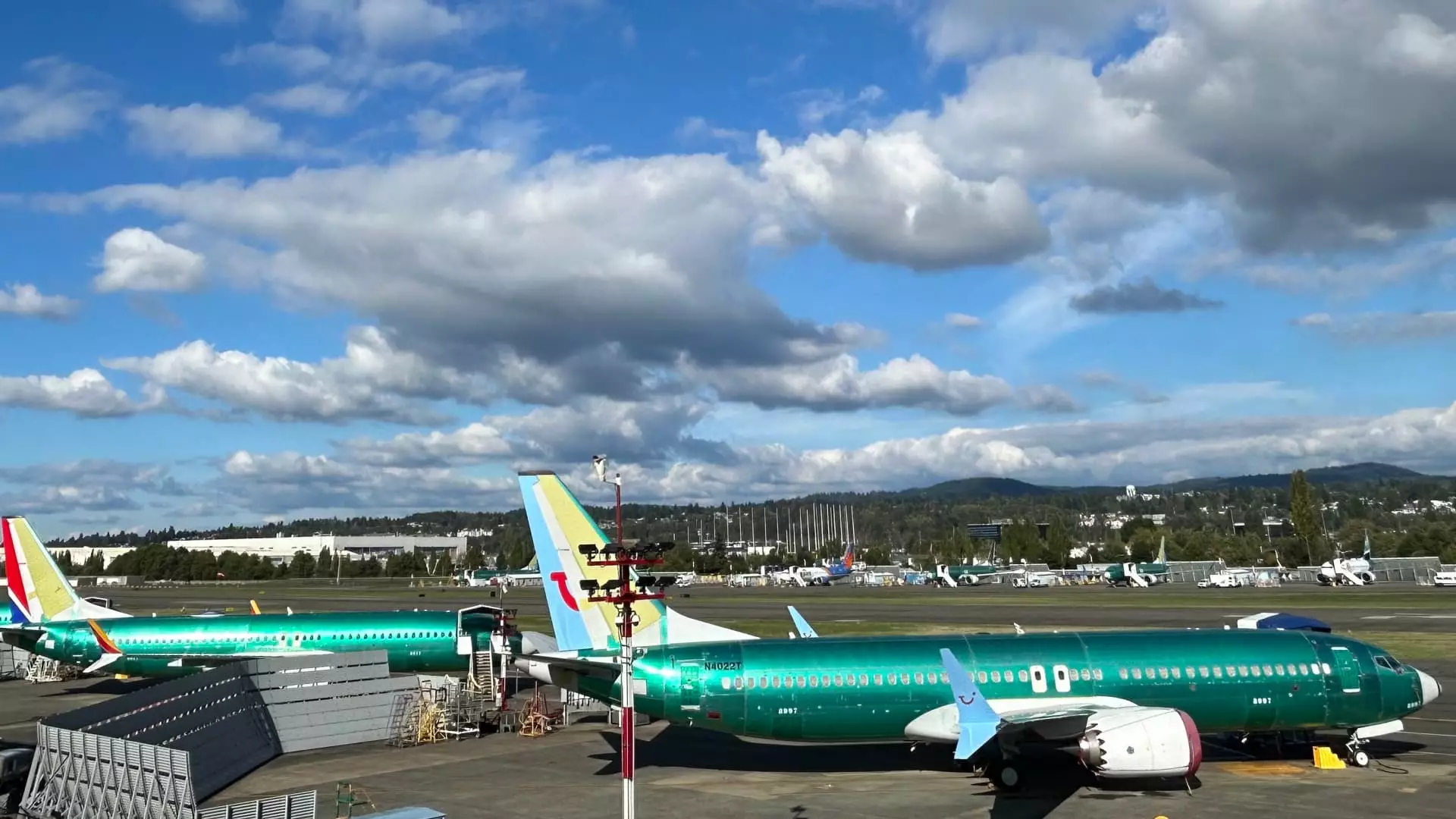In September, Boeing managed to deliver 33 aircraft, a modest increase from the 27 deliveries recorded in the same month the previous year. However, this uptrend seems minimal compared to the dramatic decline when viewed through the lens of the entire 2023 fiscal year. As of the end of September, Boeing’s total aircraft deliveries stood at just 291, starkly lower than the 371 deliveries achieved during the same timeframe in 2022. This disappointing figure raises concerns as the company navigates both internal and external challenges that could impact future performance.
Impact of the Machinist Strike
Crucially, the company is currently dealing with a machinist strike that has extended for four weeks and created significant operational uncertainty. The labor dispute originated after the workers rejected a proposed agreement from Boeing, leading to disruptions at key manufacturing locations such as the Renton facility in Washington, which is responsible for the production of the popular 737 Max. It’s ironic that while September’s deliveries featured a significant number of these Max aircraft, most were completed prior to the onset of the strike.
Industry analysts, like Sheila Kahyaoglu from Jefferies, anticipate that if the strike concludes soon, Boeing could maintain an output of 25 Max aircraft monthly. However, the company’s plans to ramp up its production to 38 units per month have been postponed by an entire year, indicating that the strike’s ramifications extend well beyond immediate production concerns.
The financial implications of this situation are noteworthy. Boeing has already incurred losses surpassing $8 billion this year, primarily due to the need for rapid revenue generation through aircraft deliveries. The company typically receives substantial payments from customers upon delivery, making timely aircraft handovers essential for cash flow. The impending quarterly results, scheduled to be released on October 23, are expected to articulate the financial fallout of the strike more clearly.
Interestingly, despite these challenges, Boeing did manage to secure 66 new gross orders in September. This figure illustrates an ongoing demand for its aircraft, particularly amid heightened competition from rival Airbus, which has enjoyed greater success in deliveries this year—boasting an impressive 447 aircraft dispatched through the end of August.
Alongside these operational and financial difficulties lies an ongoing reputational crisis for Boeing. The recent troubles have been compounded by an incident earlier in the year involving a malfunction on one of its new 737 Max 9 aircraft. The near-catastrophic event underscored existing concerns regarding the safety and reliability of Boeing’s products and cast shadows of doubt over its manufacturing processes.
While Boeing has seen slight improvements in monthly deliveries, the persistence of labor disputes, financial instability, and safety concerns raises significant red flags. The course of the coming months will be critical as the company strives to stabilize its production rates and regain customer trust in an ever-competitive aviation market. The current backlog of 5,456 aircraft presents a glimmer of hope, but it remains to be seen how effectively Boeing can manage its challenges moving forward.


Napsat komentář